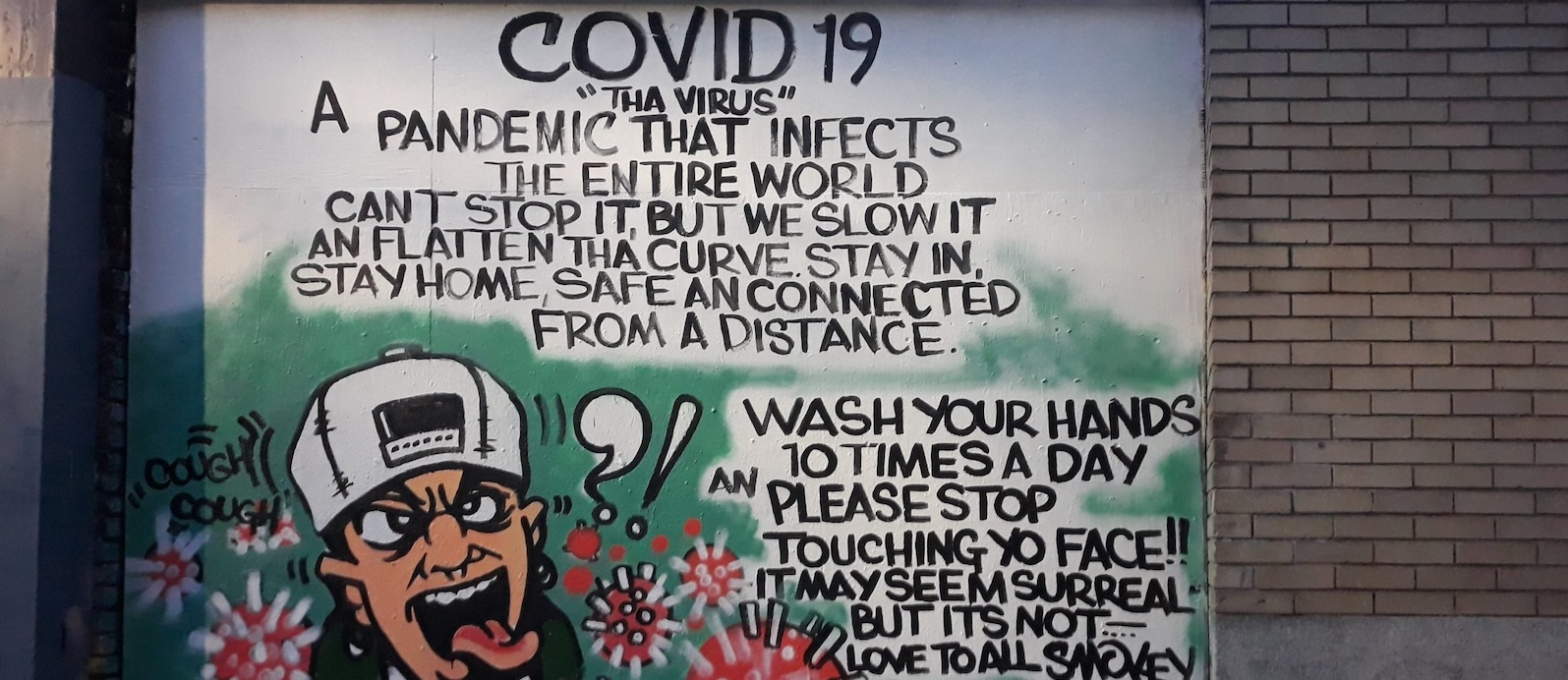
Working together to find solutions for the inner city– while also staying two metres apart
By Jennifer Johnstone, President and CEO, Central City Foundation
It’s widely understood that people in Vancouver’s inner city are among the groups most at risk during the current COVID-19 pandemic. For those of us who have spent countless hours helping people in the inner city improve their lives, it’s terrifying to contemplate the potential health, mental health and economic impacts of COVID-19 for this community.
But in the face of this crisis (and please remember that we’re still in the grips of the poisoned drug supply crisis too), we continue to see inspiring examples of empathy, resilience, innovation, solidarity and human courage. It heartens us to see grassroots community groups working together, and partnering with government, foundations and business to create programs on the fly that will help mitigate the risks for people in the inner city.
These kinds of collaborations provide us with the hope that not only will we get through this crisis, but that we can, and will, work together to build a society that is fair, just, equitable and offers each individual the chance to fully participate. Here are some great examples.
Staying connected within the community
Many of our community partners employ part time peer support workers who live in the Downtown Eastside, but when those organizations closed their doors they could no longer network and meet in person with these vital employees. Non profit organizations have now come together to redeploy those on-the-ground workers, and have them bring their lived experience to help people in the community get vital information and supports.
Many of the peer workers don’t have access to phones or the internet. That’s why Central City Foundation reached out to Telus Community, who generously found us a good number of phones immediately (with more coming), and donated six months of free service. These smart phones are now being distributed to our community partners for their peer networks, who are able to keep residents in the area informed about the need for physical distancing, hand washing etc. These valuable networks are also a crucial lifeline to provide connection and help on the front lines.
Feeding people during a pandemic
With meal programs shutting down or having to change how they brought food to people in the inner city, Potluck Café Society partnered with H.A.V.E. Culinary Training Society and Goodly Foods Society, and other food providers as well as local restaurants to prepare and deliver more than 1,500 meals daily to people living in single room occupancy hotels (SROs) as well as hundreds more meals for those without housing. Funding and support have come from the City of Vancouver, the Community Response Fund and others, and Potluck is also working with members of the film industry who are helping with logistical support, providing drivers and volunteers to help distribute the food to the DTES.
Potluck is making plans to increase their meal production as well. They have already heard from restaurants offering additional kitchen capacity if it becomes needed.
Keeping DTES residents employed
With lots of new contracts to provide cleaning services in the DTES during the pandemic, social enterprise Cleanstart needed additional workers. There are many employees in the DTES who have lost their regular work, which opened up an opportunity for collaboration with EMBERS (the Eastside Movement for Business and Economic Renewal Society). With some financial help from Central City Foundation and Vancity, Cleanstart has hired at least 20 additional workers each week through EMBERS, who specialize in providing employment for people facing barriers to other work.
The inner city community is at risk, but we see a spirit of community and collaboration with the people living and working in the Downtown Eastside leading efforts to protect and help themselves. To help them, we need to listen to what the community is saying and support their leadership.
We know that these community-led solutions are the best way to make a difference. These examples of providing connection, food security and income show us all ways that we can get involved to make a difference for the most vulnerable people in our city.
If you’d like to help our city’s most marginalized people get through this pandemic, you can support, Embers or visit Central City Foundation’s website to find many other great community organizations that could use your help. You can also donate to CCF and we will direct funds to organizations making a difference for the inner city in this crisis.
 Previous story
Previous story
